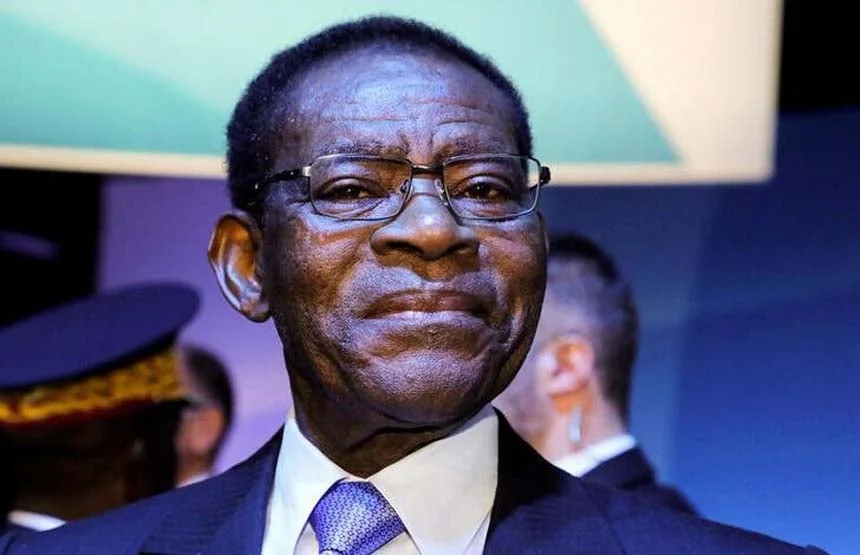On January 16, 2023, Julio Obama Mefuman, a prominent dissident and Spanish national, died while imprisoned in Equatorial Guinea, prompting widespread calls for an investigation into the circumstances of his death. The 51-year-old, a member of the Spain-based Movement for the Liberation of the Third Equatorial Guinea (MLGE3R), was serving a 60-year sentence following his alleged kidnapping from South Sudan in 2019. His death has reignited concerns about human rights abuses under President Teodoro Obiang Nguema Mbasogo’s regime, one of Africa’s longest-running and most authoritarian.
A Mysterious Death in Oveng Azem Prison
The MLGE3R announced late on January 15, 2023, that Obama Mefuman had died in Oveng Azem prison in Mongomo, a city in eastern Equatorial Guinea. The group accused the country’s regime of torture but provided no specific date or details surrounding his death. In contrast, Equatorial Guinea’s Foreign Minister, Simeon Oyono Esono Angue, stated via a tweet on January 16 that Obama Mefuman died in a Mongomo hospital following illness, firmly denying allegations of torture. The Spanish foreign ministry confirmed the death but offered no further details, leaving the circumstances shrouded in ambiguity.
The lack of clarity has fueled demands for accountability. Andres Esono Ondo, leader of Equatorial Guinea’s only authorized opposition party, the Convergence for Social Democracy, condemned the death in a tweet, calling for an international inquiry to uncover the truth and ensure prisoners’ rights to family visits. Amnesty International echoed this call, urging President Obiang to ensure an independent and urgent investigation and to guarantee that prisoners are treated with dignity, have access to legal assistance, and are free from torture.
Allegations of Kidnapping and Torture
Obama Mefuman’s case has drawn international scrutiny, particularly after Spain’s High Court announced on January 4, 2023, an investigation into his suspected kidnapping and torture, alongside that of another dissident, Feliciano Efa Mangue, also a Spanish national. According to a judicial source, both men, along with two Equatorial Guinea nationals residing in Spain, were seized in South Sudan in late 2019 and transported to Equatorial Guinea, allegedly on a presidential plane. Spanish newspaper El Pais reported that the dissidents faced repeated torture to extract confessions.
In March 2020, Obama Mefuman was sentenced to 60 years in prison, while Mangue received a 90-year term, for their alleged involvement in a 2017 attempted coup against President Obiang. The Spanish probe targets three high-ranking officials: Carmelo Ovono Obiang, one of Obiang’s sons; Isaac Nguema Endo, the security director; and Nicolas Obama Nchama, the security minister.
Equatorial Guinea’s Hardline Regime
President Teodoro Obiang Nguema Mbasogo, who seized power in a 1979 coup, has ruled Equatorial Guinea for over four decades, making him the world’s longest-serving leader outside royalty. His regime, widely criticized by rights groups as one of Africa’s most repressive, secured a reported 94.9% of the vote in the November 2022 presidential election. The government’s response to dissent has been uncompromising, with Vice President Teodoro Nguema Obiang Mangue, another of Obiang’s sons, defending the 2019 arrests on January 4, 2023. He claimed the dissidents were detained by Sudanese authorities and extradited under an international arrest warrant, accusing Spain of attempting to humiliate and disrespect Equatorial Guinea’s sovereignty.
A Call for Justice and Reform
Obama Mefuman’s death has intensified scrutiny of Equatorial Guinea’s treatment of political prisoners and its human rights record. The MLGE3R, based in Spain, the country’s former colonial power, continues to advocate for political change, while international organizations like Amnesty International press for accountability. The case highlights the broader challenges of dissent in Equatorial Guinea, where opposition voices face severe repercussions, including imprisonment and alleged torture.
As the international community watches closely, the push for an independent investigation into Obama Mefuman’s death underscores the need for transparency and justice. The outcome of Spain’s probe and global advocacy efforts may shape the future of human rights discussions in the region.






